On March 04, the Lincoln Center Theater held its one-night-only benefit performance of Lerner & Loewe’s Camelot, with Lin-Manuel Miranda as King Arthur.
Check the pictures from the red carpet in our Gallery.
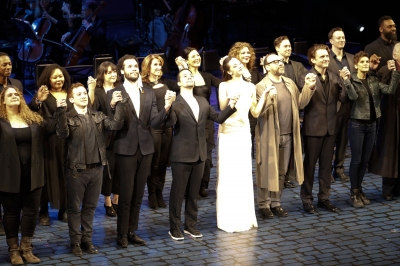
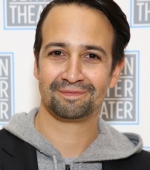
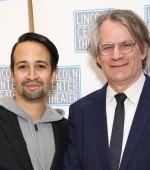

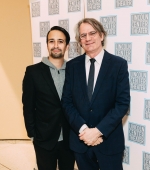
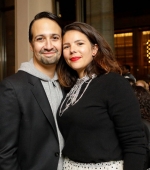
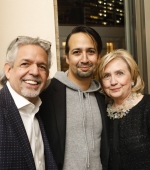
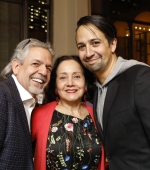
Stage Production > 2019 – Camelot > Curtain Call
Public Appearances > 2019 > 04 March – Lincoln Center Benefit Performance Of ‘Camelot’
Public Appearances > 2019 > 04 March – Lincoln Center Benefit Performance Of ‘Camelot’ After Party
Vogue shared a report of the night with brief interviews to the director Bartlett Sher and actors, including Lin-Manuel Miranda. Read it under the cut.
Last night, as snow clung to the pavement and wind whistled outside, friends of the Lincoln Center Theater escaped to a far more temperate climate in which “winter is forbidden till December and exits March the second on the dot!” (A line from Camelot, of course.) The colorful musical, created by Alan Jay Lerner and Frederick Loewe in 1960, ruled the stage once again at yesterday night’s benefit concert. In two acts directed by Bartlett Sher, Lin-Manuel Miranda led an astonishing cast while playing King Arthur, a monarch torn between idealism and the realities of leadership. Jordan Donica, whose virile voice matched his stature, received riotous applause as Lancelot, the knight who loves Arthur’s queen, embodied by the hysterical and ultimately heartbreaking Solea Pfeiffer. By the final scene, when Arthur tells the young boy Thomas to live and write, many audience members were so moved, they had to wipe their eyes. When the lights turned on, all sprang to their feet and cheered. After the performance, the cast and honored guests walked across the plaza to the David Geffen Hall, where an elegant dinner awaited.
Grinning with relief after a victorious show, Sher expressed his pride in the cast and their performance, the idea for which came from his recent work on My Fair Lady, currently revived at the Lincoln Center Theater, also by Lerner and Loewe. But Miranda was also a source of inspiration; “It started with Lin,” Sher explained of casting of the show. “And we built out from there.”
“This album was the heaviest in rotation in my mom’s Subaru,” Miranda laughed. “I’ve known the music backwards and forwards since I was little so it was really a once in a lifetime opportunity.”
For all his nostalgic ties to the work, the actor— and playwright, composer, lyricist, and singer with the Pulitzers, Emmys, Grammys, and Tonys to prove it—articulated the show’s relevance in the current political climate. Miranda, who was between shows in Puerto Rico when he received the call, described the musical as a meditation on “the difficulty of democracy and of birthing a system of laws.” Without a hint of melancholy in his eyes, he added, “I think we live that every day.”
The contrast between Camelot as seen through the eyes of a child and as revisited by an adult was poignant. Pfeiffer saw the show as a child and Donica “sang the songs years and years ago.” All reflected on the nuances and themes that a youthful exposure misses among the song and dance.
At dinner, benefit cochair Brooke Neidich, striking in a black dress, rose from her seat next to Secretary Hillary Clinton to discuss her excitement about the concert. “Camelot was my first musical!” Neidich exclaimed. “I think I missed a lot when I was ten.”
Perched at the base of the hall’s dramatic stairs, Bonnie Milligan and Solea Pfeiffer, who changed from their costumes into equally dramatic ensembles for dinner, shimmered in the afterglow. Both actresses spoke of their delight in discovering the musical and of their admiration for Sher, whose breathless two-week process included two full days of table work spent dissecting and discussing the meaning of the text.
Paused in between tables, André Bishop, the producing artistic director, reiterated his opening statements on the relevance of the story. “It’s always been a difficult show,” Bishop explained, noting the existence of various versions of the show ranging from a little over an hour to nearly four. “But I think it’s worth it and, I hope, feels as relevant now in its discussion of democracy and leadership as in the 1960s.”












